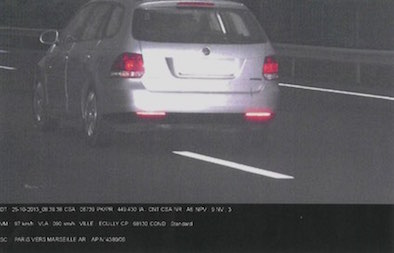When traveling in 2015, some of the biggest concerns often relate to cellular and data connectivity. I don’t have all of the answers here, but I do have some tips for a few given countries.
United States
When we travel to the US, we often have a lot of activities planned. In my case, in particular, I visit a lot of people in a lot of places. Having a reasonably-priced SIM with voice and data is thus very important to coordinate everything. I’ve tried a few and the winner for me is T-Mobile. For my length of trip, it tends to be the best deal among the major providers. There are, of course, small regional companies that lease airwaves from the big ones, but because my first stop in the US is not always in the same region, it has been too inconvenient to learn the best in each place. When I arrive, one of my first stops is always the local T-Mobile shop. Last time I went back, I was even able to save money because my old SIM had not yet expired (which happens after 3 months) so I just needed to top it up. Normally I get a plan in which I am forced to load the card with some amount of money and then a few dollars are deducted every day that my phone is turned on. I have to warn you: it’s not that cheap. I think there are cheaper packages if you order online, though I’ve never gone this route.
As an American, I have a Google Voice account. After buying a SIM, I immediately get on the internet and link my Google Voice number to whatever cellular number I have. Often, my first stop is Connecticut, so I have a SIM from that area code, but my friends around the country can call me using the same number I’ve had for years.
In the US, it is probably feasible to do without a data plan, as free wifi is fairly easy to find in most areas. The local coffee shops are hit or miss, but it is getting more prevalent. As much as I hate to do it, I often go to one of the chains, including Starbucks, Panera Bread, and Dunkin’ Donuts. They aren’t interesting (OK, well, I do like Dunkin’ Donuts quite a lot) but at least I don’t end up driving around forever.
There are some providers that I would not do business with, based on past experiences:
AT&T
The reseller gave me incorrect information on what plan I needed and then he had to charge me some additional minimum to top me up so I could get my data working. This led to me overpaying by $5 which I had no use for once I left the US. His hands were tied so I contacted AT&T customer service, which was completely unhelpful. They had my money and weren’t giving it back, regardless of the questionable legality of their bait and switch. I complained via the internet, filed a case with the Better Business Bureau, and then was contacted by Don Arteaga and Jackie W. Sutton. Nobody cared.
A reply from Tina LeBlanc: “The account that you are asking about is no longer an active account. I am not able to issue refunds for prepaid services.”
Jackie Sutton stated, “the prepaid account was cancelled and any unused account balance was forfeited upon expiration. A refund cannot be provided.”
Obviously the account was no longer active. It was a prepaid account and they waited forever to respond to my problem. It’s not my fault the account they defrauded me on happened to be a prepaid account. I hope they’re happy they got their $5, because all my business since has gone to T-Mobile. So anyways, stay away from those guys.
Family Mobile from Walmart
A salesperson at Walmart once conned me into thinking this was prepaid. She was fairly dumb, so she might have believed it too. But it’s not. I immediately returned it and, though the contract wasn’t immediately cancelled as they said it was, the company (T-Mobile) actually made it right.
Germany
In Germany I have always just gone to Saturn (big electronics store) and bought a cheap SIM card just for voice usage. This is usually about EUR 10 and trouble-free. However, I had a lot of trouble the last time I was in Germany. It led to me paying for, but not having, data for the entire trip. The card was branded Fonic but it actually was from a company named Callmobile. I guess they are basically reselling O2 service at a lower cost. This particular trip I decided I also needed data. For whatever reason, the activation never worked properly and the messages I was getting on the phone were confusing and indicated I was not getting the package I chose on the website (normally you buy the card then activate it on the web). I contacted them via the webpage and they totally ignored my messages. I sent them a message each day for the entire week I was there and even now, six months later, I have never heard back. I guess they basically got my money and knew they screwed up so they weren’t going to bother with me. I contacted Fonic on Twitter but they disavowed any connection to this since it was sold by Callmobile. I told Fonic that it kind of is their problem if they let fly-by-night companies put the Fonic name on crappy products. I can’t exactly tell you how to know which card not to get (there is generally some fine print), so I’m going to just recommend not to buy any card from the Fonic brand.
If you are familiar with a town, relying on wifi might work, but the problem in Germany is that you don’t know where it is unless you are a local. Yes, it exists in many bars and coffee shops, but you just kind of learn about it as you live in a town. It’s not generally advertised. Of course Starbucks is also around. They have wifi and slightly better hours, so in extreme circumstances I’ll go there.
France
I’ve never needed a prepaid SIM card in France, given that I live here. A traveler could probably do without data and just use wifi around town, though business hours in France are quite limited. It is better than Germany though, in that the existence of wifi is usually clearly indicated with a sticker in the window. Around France, it is very easy to find restaurants, cafes, and bars that do have it.
Other considerations
If you have a proper European SIM (I’m not sure how this applies to prepaid ones), European Union law limits what a provider can charge when you cross borders within Europe. This often has the result that some aspects of the service (SMS is a common example) can actually be cheaper when traveling than they are at home.
A final note for Americans: It is important to ensure that you have an unlocked GSM phone. For example, Verizon phones are simply not compatible with the network over here (unless you have a “world phone,” with a GSM slot). A phone from AT&T or T-Mobile, on the other hand, will generally work fine so long as you have it unlocked. Doing so will require you to call your provider. Laws and policies vary from year to year and provider to provider regarding if they will unlock your phone. Another consideration is which bands the phone supports. Often providers in a given region will utilize a couple bands and these may only partially overlap with those in use by your provider at home. This means that connectivity could be limited. If none of this works for you (wrong provider, wrong bands, etc.), you can also just buy a cheap flip phone for use only while traveling. For my first six months living in Germany, I was using a phone I bought from Saturn for maybe EUR 15. It was the cheapest they had and it actually was quite indestructible. After I replaced it with a Galaxy Nexus, it made a suitable phone for visitors.




 Fromage
Fromage